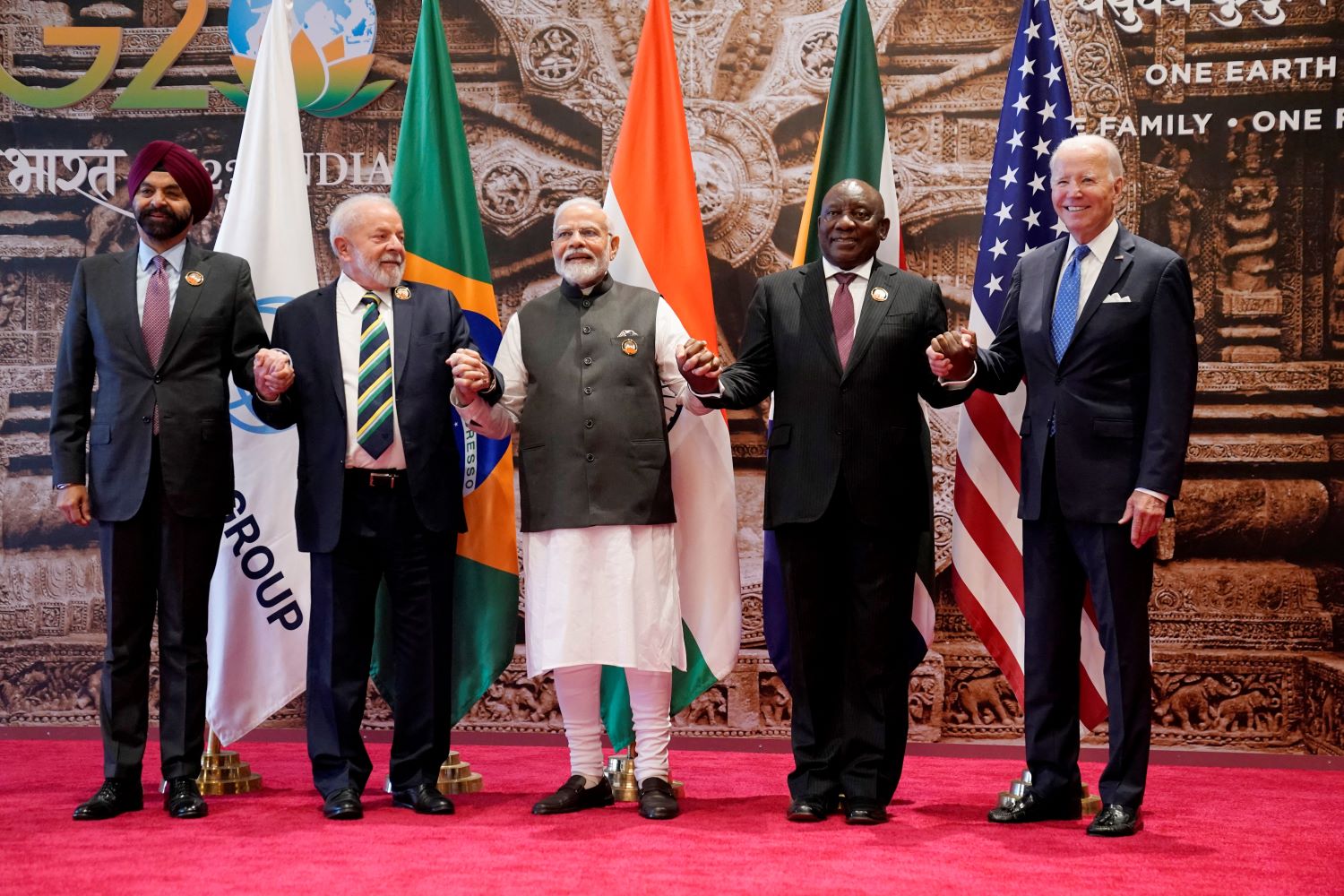Recently, the Group of Twenty major world economies, also known as the G20, met in New Delhi to pursue environmental and social concerns through international economic cooperation. With an ever-growing global economy and the unique international political moment of the Global South looking for a bridge to the West, India could step into that role of being the bridge and quickly see its geopolitical status skyrocket.
The G20 Minus Two: What China and Russia’s Absence Means for India
One of the major forces leading to India’s ascendance has been the recent absence of two global powers in the G20. Chinese President Xi Xinping and Russian President Vladimir Putin deliberately skipped the event this time.
President Xi decided to forgo the summit for a plethora of reasons. First, while dealing with domestic economic troubles, President Xi might not want to risk more unpopularity by going to the world’s premier international economic forum. With China’s youth unemployment rate on the incline and stock market seeing a slowdown, his presence at this year’s summit could be seen as counterproductive at home.
Russia’s absence has much more to do with international conflict and the war with Ukraine. Currently wanted by the International Criminal Court due to the invasion, President Putin has been wary about attending many global events. In wake of these charges, he is attempting to shift Russia’s focus to grandstanding toward the West and promoting regional cooperation. Recently, for instance, Putin held the Eastern Economic Forum with hopes of increasing economic relations and strengthening trade relations with China, Korea, Japan, and India, among other global powers.
Russia and China’s nonattendance yields multiple implications for India, most significantly, the geopolitical vacuum they have left behind. India’s role hosting the G20 this year has cemented its newfound global clout, marking a new culmination of Indian power. In the absence of a global power linking the Global South to the West, India has the ability to come out of the G20 as a new leader in terms of bridging the gap between the West and Russia.
Indeed, India and Russia have historically been close allies, their friendship stemming from India and the Soviet Union’s initial agreement of allyship. Meanwhile, President Biden and Prime Minister Modi co-hosted the Partnership for Global Infrastructure and Investment (PGI) at the G20, announcing projects such as developing key economic corridors between India, the Middle East, and other Western nations. The United States has been aiming to strengthen its relationship with India, and together they are presenting themselves as a coordinated front on economic leadership, possibly foreshadowing India’s future as a leader in this realm. With this set up, India could be the perfect liaison between Russia and the West with current global conflict at new heights and China’s absence and unpopularity within the global economic sphere.
Some of the G20’s plans have already been implemented, with the United States working closely with India. Just recently, the two nations, along with other countries throughout the Middle East and Europe, have embarked on a rail and shipping corridor to unite India to the Middle East through Europe.
“This is a really big deal,” emphasized President Biden with regard to India’s growing connectivity and prominence throughout the globe.
Outside of the G20: How India’s Geopolitical Stance Shaped Its Ascent
The G20 summit has offered the specific opportunity for India to emerge as a leader, but contextually, much more has transpired to ensure India has this chance.
India’s economy has been rising exponentially, and economists predict it will be the second largest economy by 2075. In addition to recently becoming the nation with the world’s largest population, with new investments in technology and reorganization of trade policy, India has been making huge improvements in its market economy. This new economy could be rivaling some of the absent powers at the G20, mainly China.
“India’s very robust, actually,” Rajiv Biswas, the chief economic st S&P Global, recently told CBS News. “The momentum in the economy looks really quite strong at the moment.”
Heightened tensions between China and India has led to an interesting political situation for India in relation to the United States, which, in addition to India’s growing economy and allyship with Russia, is leading to this space in the G20. China’s economy has recently been on a decline, seeing decreases in real estate and stock paired with similar downward trends in consumer spending and exports. The Chinese government has also been cautious in implementing spending tactics in the private sector to address these issues, afraid of what it could mean for the growing debt risks in other sectors. This gap in the economy in conjunction with India’s rise is making India look much more promising on the global economic scale in terms of being a market leader. Additionally, India and China have been in simmering conflict recently over their Himalayan border, making tensions between the two powers especially dicey in terms of leadership in the South, as two of the most economically powerful actors in the region are facing off.
Moreover, both nations’ relationships with the United States have been integral in shaping this new dawn for India. Biden’s administration has been effectively stifling economic ties with China with the aim to stunt Chinese market growth and more. For example, in August, President Biden signed an executive order that implements heavy restrictions on certain American investments in Chinese technology, concerned that doing so would give China the ability to grow its military prowess. When President Biden welcomed Indian Prime Minister Modi to the United States in June of 2023, it was obvious they were both committed to strengthening India’s partnership with the United States and the overarching Indo-Pacific alliance. Crucially, the G20 built upon this sentiment.
All of this elevates India’s political status, especially in comparison to other global leaders. When combined with the leadership role India took in the G20, there is a question of how India could remain a strong voice in the Global South and how its relationship with Western nations could affect the subcontinent’s destiny.
What India’s New Position Could Mean for the Global South
Evidently, India seems to be in the perfect position domestically and geopolitically to take a new position of power in the global realm. With a space opening up for a bridge between the Global South and the rest of the world, it seems as though India has already begun boosting its connectivity throughout the world to be that bridge.
While the rest of the BRICS—Brazil, Russia, India, China, and South Africa’s coalition of emerging economies—have been attempting to create a power structure that could rival the West, India seems to be the one pushing for a reorganization of the structure that already exists, placing India in a salient role. Prime Minister Modi has taken strategic actions to slowly voice the concerns of the Global South, acting as a sort of pseudo-leader in conjunction with India’s newfound rise in economic power. Most notably, by calling for the inclusion of the African Union in the G20, Modi has lately shone as an advocate for the entirety of the Global South.
With India rising to its new leading position, the country’s recent actions could be a taste of how Modi will lead the Global South into stronger alliances with other major world economies.
Featured Image Source: Council on Foreign Relations






Comments are closed.